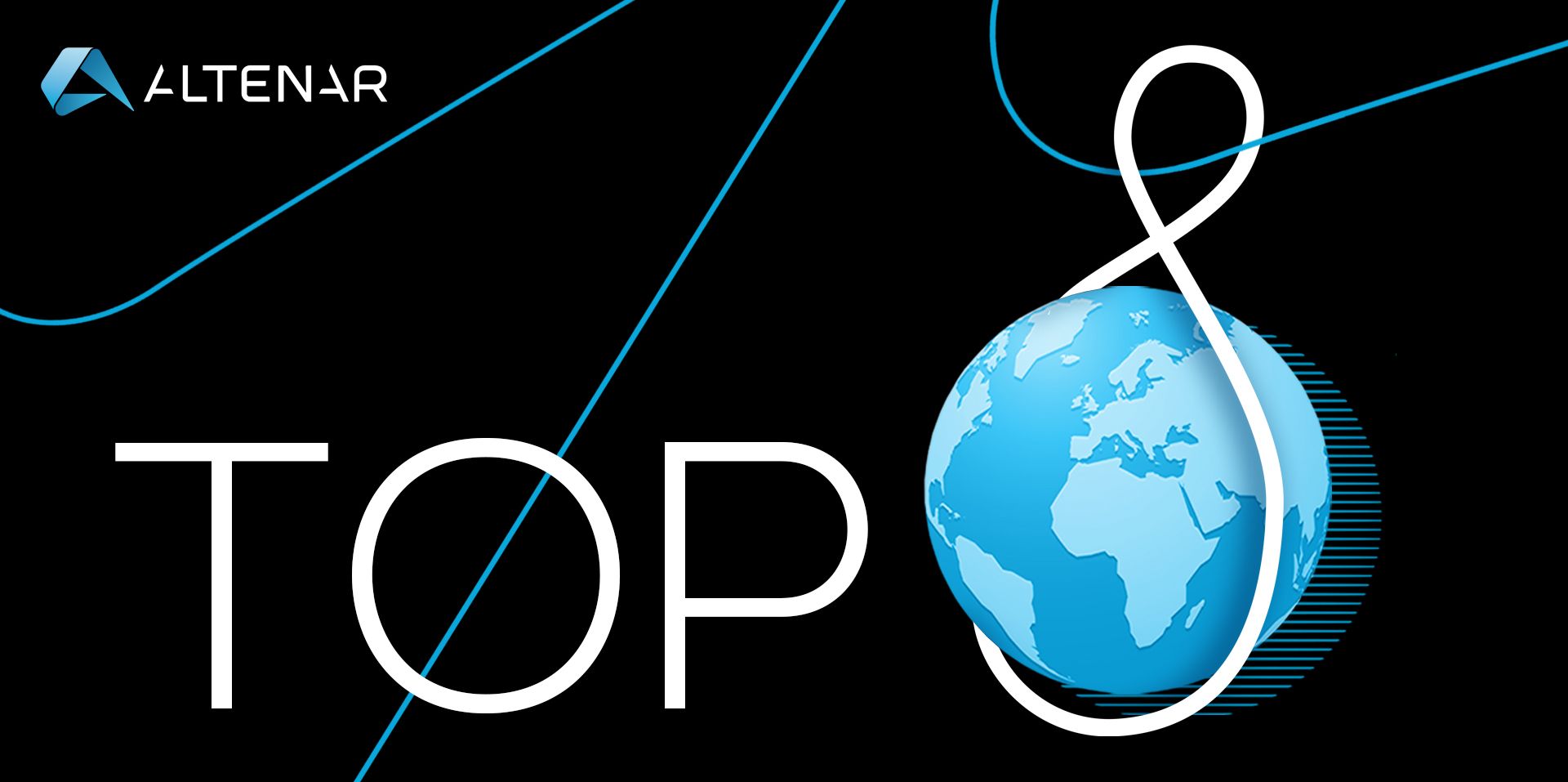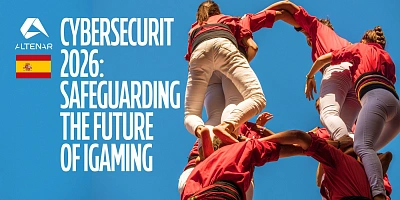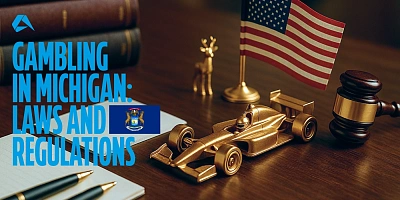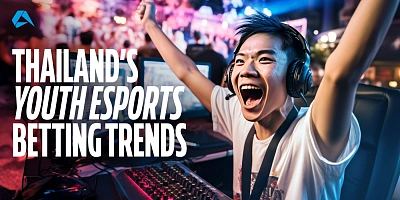As a global sportsbook software provider, Altenar has ample experience in new, emerging and historic betting landscapes that have loved the essence and entertainment value of sports betting for centuries.
In many European countries gambling has existed, in some form or other, for many years and since the earliest stages of civilization. Though, how has this love for games like Baccarat, horse race betting and more, penetrated cultures and how does it remain a source of joy and excitement for many today?
With the likes of Altenar, a sportsbook solutions provider, entertainment is at the forefront of design, fr om ensuring the best global content and access to sporting leagues, as well as an easy to use frontend and backend that benefits both the operator and the end user / bettor.
In this article, you will discover 8 countries & regions that love sports betting and some information on what’s needed to enter this market space, its historic love for betting and how a long-standing love-filled relationship with betting has nurtured the always-expanding industry!
United Kingdom
The UK has a prevalent and flourishing sports betting and gambling industry, so much so that each year thousands of the iGaming industry’s best flock to London to share their newest features, products and showcase their year’s work on one of the largest iGaming stages in the world (ICE London).
As a host of countries with generational stock in the betting industry, from slot machines in your local pub to sports bettings as part of the general sporting experience, operators can flourish in the UK’s sports betting market.
Remote operating licences do not reflect the distinction between B2B and B2C business models. B2B operators hosting games through B2C websites required a licence authorising remote casino, bingo, betting (virtual events) or betting (real events), in addition to gambling software, as hosting games constitutes providing facilities for gambling.
However, new legislation introduced in April 2017, the Gambling (Operating Licence and Single-Machine Permit Fees) Regulations 2017 (SI No 303, 2017), created B2B-specific “host” subcategories:
- casinos (game host)
- bingo (game host)
- general betting (host) (real events)
- general betting (host) (virtual events)
- However, these licences are subject to various requirements.
- the company must hold a gambling software operating licence.
- the company must not contract with players directly
The regulatory body, UKGC, allows the following games of chance:
- betting (live, in-play, fixed-odds and pari-mutuel, betting exchanges and intermediaries)
- bingo
- casino
- fantasy sports
- gaming machines
- gambling software
- Lotteries
- Poker
Additionally, for sports betting specifically the UKGC ask for numerous licences, some of which include:
- Non-remote general betting standard operating licence
- Non-remote general betting limited operating licence
- Remote general betting standard real events licence
- Remote general betting standard virtual events licence
- Remote betting host real events licence
- Remote betting host virtual events licence
- Remote general betting limited licence
Malta
Malta is historically known for its proud and long-lasting relationship with the betting and iGaming industry that has found home on the Mediterranean island. The country has found success in a host of iGaming verticals, and sports betting is no exception.
Altenar has found one of many homes in this country and benefits from the historical knowledge of the area and the ability to rub-shoulders with the industry’s best!
The MGA (Malta Gaming Authority) Allows the following games of chance:
- online betting;
- bingo;
- casino;
- lotteries;
- fantasy sports;
- poker; and
- social gaming.
Types of Licences
As a sportsbook software provider, Altenar has ample experience in being regulation compliant and wants to share some of the requirements you’ll need to participate in Malta’s iGaming landscape. As one of Altenar’s homes, the sports betting solutions provider knows Malta and its betting landscape well. The MGA may issue the following licences:
A gaming services licence – a business-to-consumer (B2C) licence to offer or carry out a gaming service. A B2C licence may constitute any one or more of the following game types:
- Type 1 gaming services – games of chance played against the house, the outcome of which is determined by a random number generator, and which includes casino-type games.
- Type 2 gaming services – games of chance played against the house, the outcome of which is not generated randomly, but is determined by the result of an event or competition extraneous to a game of chance, and whereby the operator manages its risk by managing the odds offered to the player.
- Type 3 gaming services – games of chance not played against the house and wherein the operator is not exposed to gaming risk, but generates revenue by taking a commission or other charge based on the stakes or the prize, and shall include player versus player games such as poker, bingo, a betting exchange and other commission-based games.
- Type 4 gaming services – controlled skill games.
- A critical gaming supply licence – a business-to-business (B2B) licence to provide or carry out a critical gaming supply that is indispensable in determining the outcome of a game or games forming part of a gaming service, and/or is an indispensable component in the processing and/or management of essential regulatory data.
- A corporate group licence – B2B or B2C corporate group licences may be issued to a corporate group that includes more than one company within its structure. This may be available wh ere the entities concerned provide critical gaming supplies solely to other entities within the same group. In such instances, an additional B2B licence will not be required. However, if entities within the B2C corporate group licence provide critical gaming supplies in or fr om Malta to entities outside of the group, a separate B2B licence would be required. The entities that can be covered by the corporate group licence must be established in Malta or another EU/EEA jurisdiction.
As an operator looking to enter Malta’s betting landscape, you can harness Altenar’s sportsbook solution today by contacting the team!
Spain
Spain has a rich and long-standing history with sports betting, so much so, that the country has developed a strong and competitive market wh ere the best of the best in the industry come to showcase their solutions, products and more.
As a country with a deep and generational love for betting, how can an operator enter the space?
Online gambling at national level is regulated by the Spanish Gambling Act (Ley 13/2011, de 27 de mayo, de regulación del Juego) and each gambling product has its own regulation approved by a ministerial order. If a game is not regulated or does not fit in any of the regulations in force, that game is not permitted.
The games that have been regulated so far, and that are therefore permitted to be offered at federal level, are the following:
- Pools on sports betting
- Fixed-odds sports betting
- Pools on horse racing
- Fixed-odds horse racing
- Other fixed-odds betting
- Exchange sports betting
- Exchange horse racing
- Other exchange betting games
- Contests
- Poker
- Bingo
- Roulette
- Complementary games
- Blackjack
- Baccarat
- Slots
Below is a list of Technical gambling companies that must complete an audit every 2 years.
BMM
- Gameplay evaluation ( Functional Evaluation)
- Security Vulnerability assessment/Penetration test:
-
Vulnerability assessment/Penetration test
-
ISMS audit
GLI
- Gameplay evaluation
- Vulnerability assessment/Penetration test:
- Network layer (Evaluation assessment, try to reveal any known found system vulnerability)
- Application (connect to application as regular user , blackbox-no creds, whitebox-2 usernames enough credits)
- ISMS evaluation
As an operator wishing to enter the Spanish betting landscape with a technically and regulatory compliant sports betting solutions provider, Altenar is the go-to partner for you.
ONTARIO (Canada)
Newly regulated Ontario has witnessed considerable growth and interest since its 2022 announcement that iGaming businesses can enter Ontario. As a sportsbook provider that was one of the first to enter this new landscape, many operators can benefit fr om this know-how and take advantage of entering a changing landscape.
If you’re looking to begin your sportsbook journey in Ontario you should contact Altenar today!
The AGCO offer two types of certification for operators and providers, and they explain how you must qualify and represent yourself, here is a an extraction from the AGCO website:
- Gaming-Related Supplier – Manufactures
A person that manufactures, provides, installs, tests, maintains or repairs gaming equipment or who provides consulting or similar services directly related to the playing of a lottery scheme or the operation of a gaming site.
- Gaming-Related Supplier – Other
A person that provides, installs, tests, maintains or repairs gaming equipment or who provides consulting or similar services directly related to the playing of a lottery scheme or the operation of a gaming site.
The AGCO notes that each application will be considered on an individual basis and this process is a must if an operator or provider wishes to enter the Canadian market.
- You are manufacturing (e.g., software or hardware) or providing a service.
- Your goods or services are directly related to the playing of a game or the operation of a gaming site,
- Platform providers.
- Suppliers that manufacture, develop, provide and/or run games and game systems.
- Customer electronic wallet providers.
- Odds makers.
- Sports integrity monitoring organisations.
- Independent Test Labs.
To apply for an AGCO licence you must have the following documents:
- Supplier Application
- Personal Disclosure for individuals identified below
- Entity Disclosure (if applicable)
- Regulatory fee
- Supporting documents (as applicable)
The Netherlands
Another country that recently regulated its betting and iGaming industry, which saw great accolades and interest from the industry at large was the Netherlands. Altenar is fully regulated to enter this landscape and if you’re looking to level-up your online gaming business then Altenar is the route to take!
So, what is expected of a sportsbook solutions provider within the Netherlands?
Online gambling had previously been prohibited in the Netherlands, but the passage and subsequent enactment of the delayed Remote Gambling Act (KOA) meant the market was finally able to launch.
The KOA was eventually enacted on 1 April this 2021, allowing licensed operators to market their sites in October of the same year.
The Regulation further specifies the regulations set out in the Decree and will govern the following:
- Remote gambling licensing and operations
- The organisation of remote gambling: which includes the licensee’s integrity policy, access to remote gambling and management of gambling credits, consumer protection, the gambling system and the inspection of the gambling system; and
- Compliance supervision and enforcement: which includes recording and reporting requirements and a datasafe (control database) for monitoring purposes.
The amended BGA ( Betting and Gambling Act ) is not introducing a licensing system for B2B service providers. Service providers such as software suppliers and affiliates are, in principle, free to provide out services to locally licensed remote gambling operators. That said, B2C operators will be subject to extensive requirements regarding outsourcing which means that we need to get certified for providing our sportsbook in the Netherlands.
Latin America
Though this is a blanket title for a host of incredibly successful betting landscapes throughout LatAm, it’s important to understand that these countries are shaping and defining their betting landscapes, employing efforts to increase safe gaming and much more.
LatAm has witnessed inordinate growth in the past few years and part of this success is having access to tier-one providers, like Altenar, who are able to adapt their fully managed sportsbook solution to your needs.
You can discover the LatAm countries that Altenar is regulated in, as well as current success and history here.
For the purposes of this article, Colombia will be used as a demonstration on what types of regulatory frameworks may be asked of an iGaming operator within the space.
The gaming industry in Colombia is a monopoly held by the government at the constitutional level and is regulated under the Colombian Gambling Act, Law 643 of 2001.
The Gambling Act organises the administration and control of the gaming industry at two levels, national and regional. At the national level, the administration and control of the gaming industry is undertaken by Coljuegos (the national gaming authority); at the regional level, administration is undertaken by the corresponding regional government and control by the National Council of Games of Luck and Chance (CNJSA) and by the Health Superintendency.
- Includes bets on real sporting events and bets on real non-sporting events.
- Bets may be offered as a fixed-odds modality or in the exchange betting format.
- It is prohibited to offer pari-mutuel betting on sporting events as this is part of a specific licence in a different category.
- Horse racing events are also not covered, as they are regulated at the regional level.
- The law states that it is forbidden to take bets on real events regarding the results of, for example, casino table games, slots and bingo wh ere the results are defined by a random number generator.
- Specials (Politics etc / Non sport events) are forbidden.
Sweden
As a long-standing and highly competitive market, Sweden is a haven for iGaming companies as it drives the necessity for innovation and expansion.
As a sportsbook software provider, Altenar is ready to level-up your sports betting business in this iGaming market.
When holding an online commercial gambling licence, a gambling operator may offer the following games: online slot machines, online bingo and online casino games. Online lottery products are reserved for the state-owned gambling operators and not-for-profit organisations.
When holding an online betting licence, a gambling operator may offer the following types of games in addition to traditional sports betting:
- betting on fantasy sports
- betting exchanges
- betting on virtual events
- betting on the outcome of a lottery
Fantasy sports gambling can, depending on the various skill elements present within the game, be considered as a game of chance or skill. Fantasy sports that are deemed as games of skill are not regulated by the Gambling Act.
From 1 July 2023 onwards all suppliers active in the Swedish market will be required to have a B2B licence as part of the amended Gambling Act.
Denmark
As a highly active betting landscape and one with a host of bettors, Denmark has the following regulatory rules and the following is a brief overview…
The Gambling Act defines "online gambling" as gambling that is entered into by a player and a gambling operator using remote communication. Remote communication means communication without the player and the gambling operator meeting physically; for example, through the internet, telephone, radio, mobile phone, or email.
B2B Licences (Suppliers, Software, Etc) - Online operators that do not contract directly with players, but only provide services to gambling operators, are not required to hold a licence.
Change Management - Special Requirement for Denmark is the Change Management Provisions. The change management programme ensures that all changes to the gambling system are conducted to this set of standards, hereby seeking an adequate quality for the implementation of changes.
The programme ensures transparency in relation to changes to the gambling system and the decision process behind those changes.
Contact Altenar today to level-up your iGaming business!













